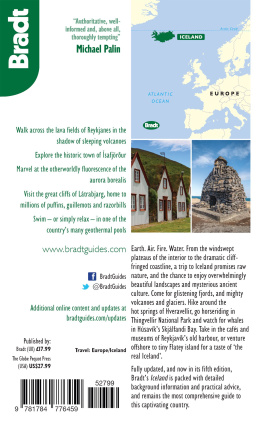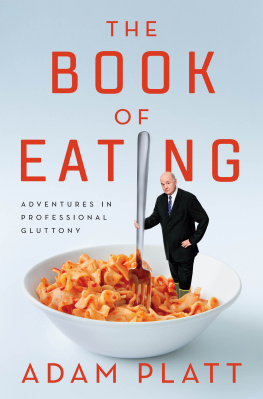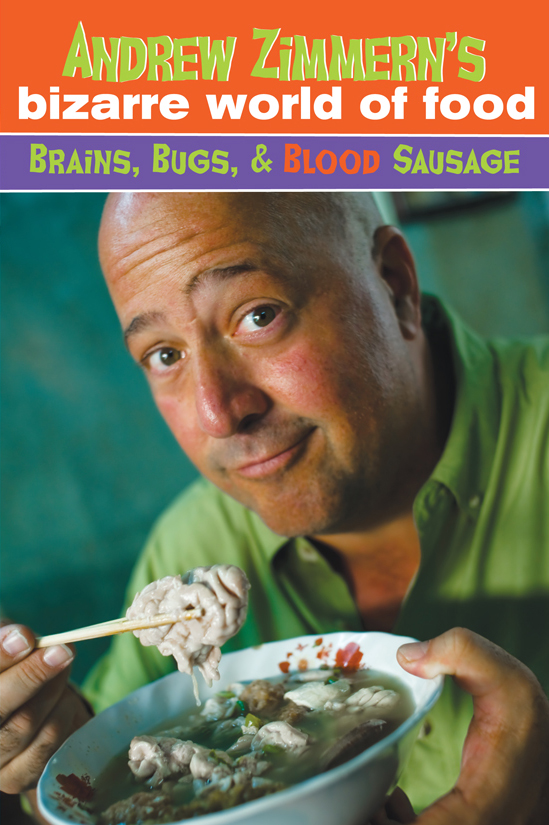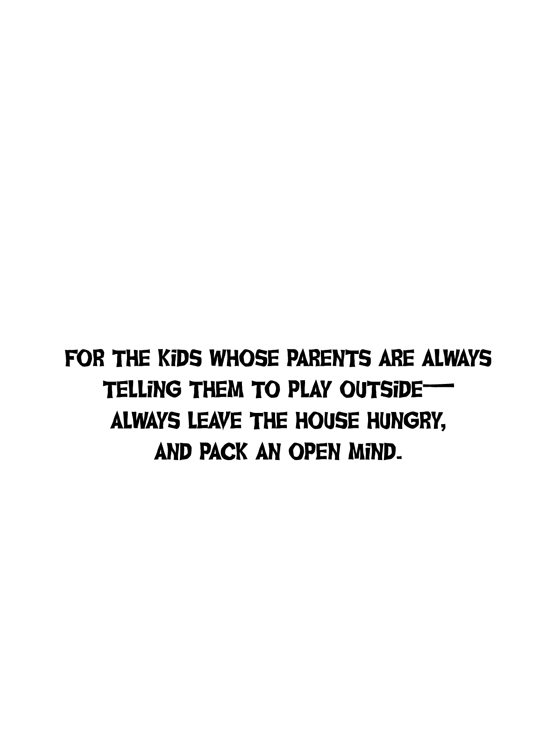All rights reserved. Published in the United States by Delacorte Press, an imprint of Random House Childrens Books, a division of Random House, Inc., New York. This work is based upon The Bizarre Truth: How I Walked Out the Door Mouth First and Came Back Shaking My Head, published in hardcover in the United States by Broadway Books, an imprint of the Crown Publishing Group, a division of Random House, Inc., in 2009.
Insert photographs courtesy of The Travel Channel, L.L.C.
Modern-Day Vikings:
Puffin Hunting in the Land of Fire and Ice
The Most Dangerous Game:
How I Almost Lost My Life Tracking Down Samoas
Elusive Giant Fruit Bat
Journey to the Source:
Why the Shortest Distance from Sea to Plate Makes for
Amazing Meals
Muddy Waters:
Ugandan Lungfishing Can Be Messy
Saving Huatulco:
Free Diving for Octopus
Death Match:
Can a Matador Save Madrids Historic Tabernas?
Forgotten Foods:
Juicy Cheese Worms Are Making a Comeback!
Welcome to a Wazwan:
The Meal That Nearly Killed Me
Marys Corner:
The Quest for the Best Laksa in Singapore
Simple Foods:
Noodle Houses of Guangzhou
Fish Heaven:
Finding Perfection in a Ginza Basement
Natures Candy:
The Achachairu
Pleasant Surprises:
A Gallimaufry
I am a traveler. I am not a tourist. Occasionally I do touristy things, but Ive discovered that diving into a culture mouth-first is my favorite way to explore a new place. It makes me happy. Now Im reaching out to you, my most important reader. I want you to love to travel, to feel inspired by firsthand accounts of journeys, so youll go into the heart of the African jungles in search of lost culinary gold. I want you to experience the rush of warm air on your cheek as you exit a tiny plane on the tarmac of a small airfield in South America. I want you to feel your heart race, imagining the adventure of a lifetime that awaits you. I want you to let go.
My parents divorced when I was about six. My mom and I spent summers at the beach house and managed to get to a warm-weather island at least once every year (my mom was writing a book about shells), but my dad was the one who loved to really take off. I traveled a lot with him. At first it was ski weekends in Manchester, Vermont; by the time I was twelve, it was off to Europe. On those trips with my dad, I learned a new approach to spending time in a foreign country.
My dad taught me many thingshow to travel, how to write, how to tell a joke and take the room, how to shop for socks and tie a tiebut most importantly, he taught me how to eat and how to cook. When my dad and I visited London, we spent as much time cruising the aisles at Harrods and exploring Chinatown as we did looking at the British Museums Elgin Marbles. Thats not to say that if you ever find yourself in Rome you should skip the Colosseum or the Forumthose are some of the most awesome sites in the worldbut be sure to make time for people-watching in neighborhood cafs as well. Thats where you will find the authentic Roman experience.
My dad also taught me that exploring off the beaten path was the best way to experience a country, a culture, and its people. Traveling as far as we could in one day, just for a great meal, was how we rolled. Dad insisted that you dont have to leave the countryor even your area codeto put his travelers creed into practice. Its easy to forget how much there is to explore right outside your own front door. Every summer, my dad would drive us from our summer home in East Hampton, Long Island, out to Montauk at the islands tip. It was only about twenty miles away, but it felt like the other side of the world. Wed sit on a dock, watching fishing boats unload crates of fresh seafood pulled right out of the Atlantic. My dad and I would hound these crates to the clam bars on Montauks docks just to eat the freshest food we couldbecause thats the best its ever going to taste. Time is the enemy of food. Whenever we could, wed favor the smaller, local clam bars. That was our summer.
In the winter, we lived to ski. In 1976, we took a family trip to Val dIsre, France. For the first two days, we woke to six inches of fresh powder under the warm March sun. We were ecstatic. On our third day, it began to snow, and by that afternoon we were forced off the mountain by whiteout conditions. It snowed so heavily for so long that food delivery to the Alpine ski village ceased after a week. By day nine, we were living on sardines and crackers in the hotel lobby. After day ten, the snow finally stopped. The mountain wasnt open for skiing yet, but cars were allowed on the roads. Dad piled everyone into the van and drove all day across France to Paul Bocuses restaurant in Lyon.
The great French chef Paul Bocuse, one of my heroes, was born on February 11, 1926, making him only a few months older than my father. Critics often remark that without Bocuse, there would be no modern food movement. Bocuse pursued a revolutionary idea that food must be cooked in a way that allows the natural and true flavors of the ingredients to shine through. He believed that quality, technique, improvisation, and fantasy all play roles in defining great cuisine. Each meal you have should be an incredible, fun, and new experience. Savor and enjoy it.
In the 1970s, Bocuses restaurant was universally regarded as the worlds finest. Today, the idea that a chefs food is only as good as his ingredients is no longer novel. Neither is the concept that simple food can be as good as complicated, technique-driven food. Instead of elaborate sauces and ornate presentations, Bocuse relied on the fresh ingredients of Lyon and provincial France. As I walked through the restaurant, I couldnt stop staring at the fancy chandeliers, white tablecloths, expensive table settings, and ornate decorations. This place was elegant by any standards, and I was intimidated. I crossed my fingers, closed my eyes, and hoped not to break anything. I clearly remember the kitchen help, women in their fifties in traditional long skirts and head coverings, running out into the gardens for the seasons first herbs. The aromas were deep and exhilarating, and many dishes were still being served and finished tableside.













